Angela Merkel was a very unhappy woman on Sunday, and who could blame her. In spite of winning the federal elections on September 2017, her chance to become the German Chancellor for the fourth term has hit the wall, for now. While it was a victory, her CDU-CSU (Christian Democratic Union-Christian Social Union) alliance received 33% of the vote – a drop of 8.6%.
In the same breath, Merkel could blame nobody but herself for the present crisis. She had single-handedly driven her party – CDU – to its worst result since 1949. In fact, the CDU/CSU’s former junior coalition partner, the SPD, had quit the “grand coalition”, after suffering its worst result since World War II – getting only 20.5% of the vote, down 5.2% from 2013’s result.
Effectively, Merkel’s CDU-CSU alliance only won 246 seats, when 355 seats are required to form a simple majority government. Compared to last election, the grand coalition of CDU-CSU-SPD had lost a whopping 105 seats or 13.8% votes. The major beneficiaries are none other than right-winger AfD (Alternative for Germany) and pro-business FDP party.
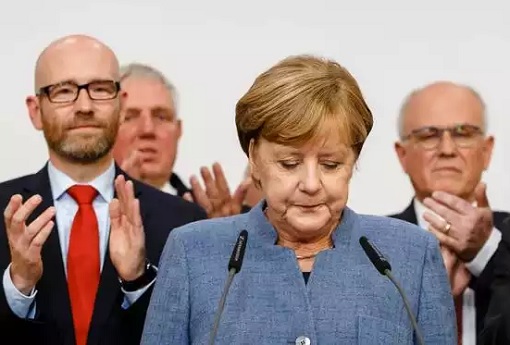
Both AfD and FDP won 94 seats and 80 seats respectively – from zero seat last election. The main problem is the AfD’s victory. Previously unrepresented, the anti-migrant, anti-Euro, anti-Muslim and anti-Merkel AfD party became the third biggest party in the German Bundestag (or German parliament), sending over 90 politicians there.
Indeed, it was Merkel’s arrogance and ignorance that allows AfD to join the German parliament for the first time in 70 years. With SPD and AfD out of the picture, the acting chancellor was forced to put aside her pride and arrogance, at least temporary, on a 4-week negotiation expedition with whatever parties left on the table to form a government.
On Sunday, that three-way coalition government negotiation failed spectacularly, hence triggering a political crisis not only in Germany but also in European Union. The failure to form a new German government is pushing the Europe’s largest economy to the brink of a new election. The euro dropped as much as 0.6% against the US dollar.
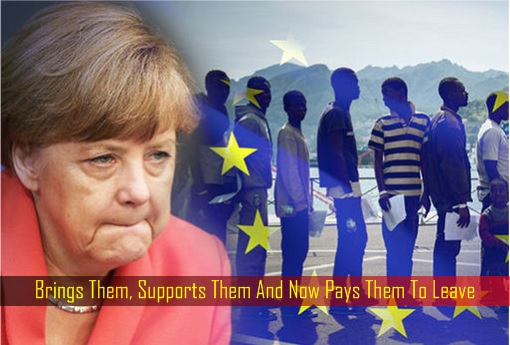
The pro-business FDP party (80 seats) unexpectedly pulled out of the negotiations with Merkel’s conservative bloc and the ecologist Greens party (67 seats), citing irreconcilable differences. A sober-looking Merkel said – “It is a day of deep reflection on how to go forward in Germany. As chancellor, I will do everything to ensure that this country is well managed in the difficult weeks to come.”
Like the rise of AfD, the break down of the negotiation to form a government is also related to Angela Merkel – immigration issue. Her CDU and especially their more conservative CSU allies from Bavaria are pushing to limit Germany’s annual intake to a benchmark figure of 200,000. While the Greens finally agreed to the number, they wanted something else.
The Greens, who favour migrant rights, will not budge on their demand for a resumption of family reunions for those who have been granted temporary refuge in Germany, something opposed by both the CSU and FDP. It was quite funny how Merkel ended up at the receiving end this time. There was one time when Merkel would not budge in welcoming unlimited refugee to the country.
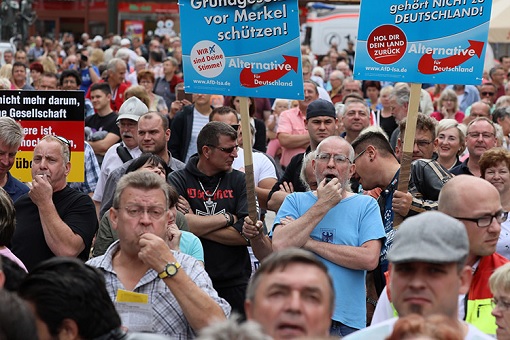
The collapse of negotiation means Germany, under Merkel’s leadership, is reduced with 2 unprecedented options: the acting chancellor forms a minority government, or the president calls a new election if no government is formed. But it’s not that hard to understand why Merkel would not dare to go to the ballot box again, and why she couldn’t agree to the Green’s demand.
Migrants and refugees have been Germany’s toughest political issue since a mass influx from 2015 brought some 1.2 million asylum seekers, thanks to the acting chancellor’s policy of welcoming Muslim refugees into the country. It was Merkel’s arrogance and ignorance which sparked a backlash that opened the door of German Bundestag to the far-right AfD.
Merkel supporters and campaign managers tried to associate AfD with Nazism. But the marketing was overwhelmed by Germans who got absolutely sick and tired of unproductive Muslim refugees and terror attacks ever since. In July 2016 alone, Germany was hit with 5 violent attacks which saw 10 people killed and dozens more injured in separate gun, bomb, axe, machete attacks.
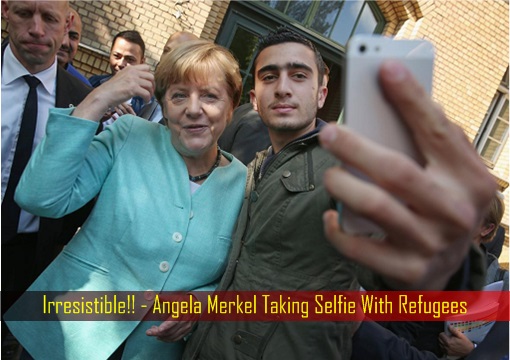
Merkel happily welcomed 1.2 million Muslim refugees into Germany in 2015, only to be repaid with mass sexual assaults / rapes by 1,000 Muslim migrants/refugees in Cologne, Germany, during 2016 New Year’s Eve. Under her administration, the police and Cologne Mayor Henriette Reker were under instruction to cover-up the “Rapefugees” crisis.
She then set aside at least €90 million (US$95.7 million; £76.7 million; RM425 million) of taxpayers money to pay for her own mistakes. She was reduced to offer free cash to migrants or refugees willing to leave Germany. There was also a jaw-dropping report that the nation has been importing junks instead of talents – a whopping 1.1-million unemployable migrants.
Make no mistake about it. The dissatisfaction with Merkel over her migrants and refugees issue is still burning hot. The fact that the acting chancellor would rather see the negotiation breaks down than to agree to the Greens party’s demand speaks volumes about the issue. Besides, it could be a plot to play Merkel on the issue of refugees’ family reunification.
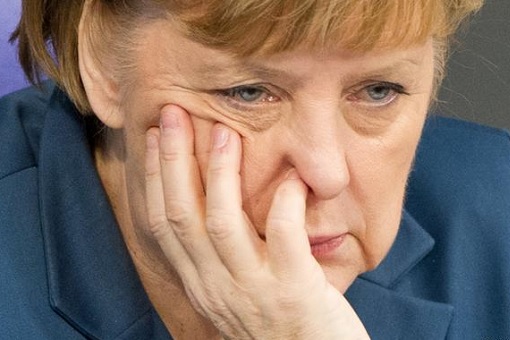
Should Merkel call for a new election after being tricked by the Greens, her CDU-CSU alliance would suffer further defeat as she would be seen as a forked tongue leader. Even now, she’s too afraid to call for a fresh election despite the failed negotiation. The CDU-CSU fears that the AfD would win more than the almost 13% of votes it had already secured, if a new election is called.
Other Articles That May Interest You …
- Congrats Merkel, You Drove Your Alliance To Their Worst Result Since 1949
- Drunken Refugees Riot In Germany Because Of Poor Mobile Phone Signal
- Merkel’s Gift To Migrants – “We’ll Pay You Money, Lots of Money, If You Leave”
- Merkel’s Christmas Gift – Refugee Terrorized Christmas Market With A Truck
- After “Double Humiliations”, Now Cocky Merkel Wishes She Could Turn Back Time
- Germany A “Time-Bomb” – But Defiant Merkel Still Wants More Refugees
- Germany Has Been Importing Junk Migrants – 1.1-Million “Unemployable”
- Germany Under Attack – Molest, Rape, Sexually Assault By 1,000+ Arab Mobs

|
|
November 20th, 2017 by financetwitter
|


|

|

|

|

|

|




























Comments
Add your comment now.
Leave a Reply